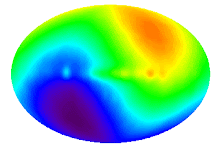Whole body systems approaches for gut microbiota targeted preventive healthcare
Humans are superorganisms with two genomes that dictate phenotype, the genetically inherited human genome (19042-25,000 genes) and the environmentally acquired human microbiome (over 1 million-3.3millions genes). The two genomes must work in harmonious integration as a hologenome to maintain health. Nutrition plays a crucial role in directly modulating our microbiomes and health phenotypes. Poorly balanced diets can turn the gut microbiome from a partner for health to a “pathogen” in chronic diseases, e.g. accumulating evidence supports the new hypothesis that obesity and related metabolic diseases develop because of low-grade, systemic and chronic inflammation induced by diet-disrupted gut microbiota. Due to the tight integration of gut microbiota into human global metabolism, molecular profiling of urine metabolites can provide a new window for reflecting physiological functions of gut microbiomes. Changes of gut microbiota and urine metabolites can thus be employed as new systems approaches for quantitative assessment and monitoring of health at the whole-body level with the advantage of measuring human health based on the results of interactions between the two genomes and the environment rather than just host genomic information.
skip to main |
skip to sidebar
網誌存檔
-
▼
2012
(31)
-
▼
4月
(31)
- Gut-Liver Axis and Sensing Microbes
- The Microbes of the Intestine An Introduction to T...
- Effect of Interactions of Bacteria, Viruses, and E...
- Human gut microbiome: the second genome of human body
- Microbiota immune system interaction: an uneasy al...
- Metagenomics: Key to Human Gut Microbiota
- MICROBIOTA:THE FOGORTTEN ORGAN
- Gut Microbiota and Its Pathophysiology in Disease ...
- GUT MICROBIOTA
- The gut microbiota as an environmental factor that...
- Human gut microbiome: the second genome of human body
- Microbiota immune system interaction: an uneasy al...
- Whole body systems approaches for gut microbiota t...
- HUMAN SUPERORGANISM
- Infection Control in the Multidrug-Resistant Era: ...
- The gut's 'friendly' viruses revealed
- Ecological and evolutionary forces shaping microbi...
- 功能元基因组学与中药研究国际研讨会
- 不適當不合理的過度的抗生素使用,將殺害對我們人體有益的細菌。抗生素使用考慮的除了聚焦在細菌抗藥性之外...
- 停止殺害對我們人體有益的細菌
- 人類腸道中的微生物體,提供了豐碩的有關健康和疾病的信息。它們訴說了人體內在的運轉運作的故事。
- 人類腸道微生物體,具有消化、生物降解、生物聚合、生物轉化、解毒作用、防衛功能、促進生長成長發展發育成...
- 人類超級生物體和人類微生物體
- 這個廣泛的微生物基因體參與了食物、藥物和其他有毒性的化合物的,初次通過的新陳代謝和生物可利用性的生物...
- 這個人類超級生物體,包括了兩套基因體,一個完整的人類基因體和數目巨大的微生物基因體。這兩套基因體一定...
- 人類腸道的微生物體能夠控制器官的功能。
- 人類腸道微生物體,是一個最緻密的、最複雜的、最生物多樣性的、動態的生態體系。生態的和演化的力量形塑人...
- 人類腸道微生物體,包含了大約一百兆個微生物,它的數目是人類身體所有細胞數目的十倍,這個人類腸道微生物...
- 人類腸道微生物體和人類超級生物體
- 人類腸道微生物體和人類超級生物體
- 人類生態系統是非常重要的,它決定甚麼是我們能做的和甚麼是我們能吃的。
-
▼
4月
(31)

沒有留言:
張貼留言